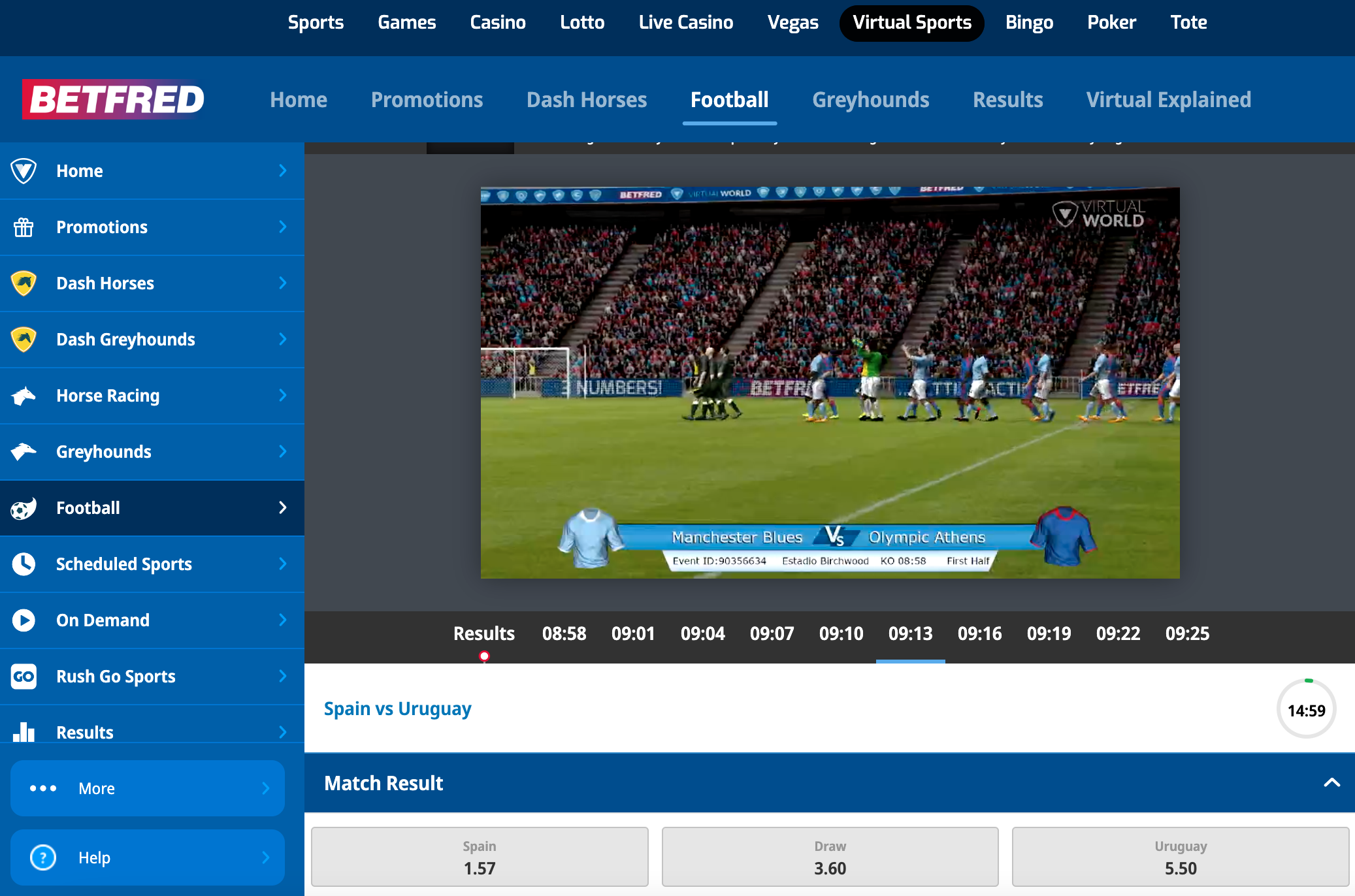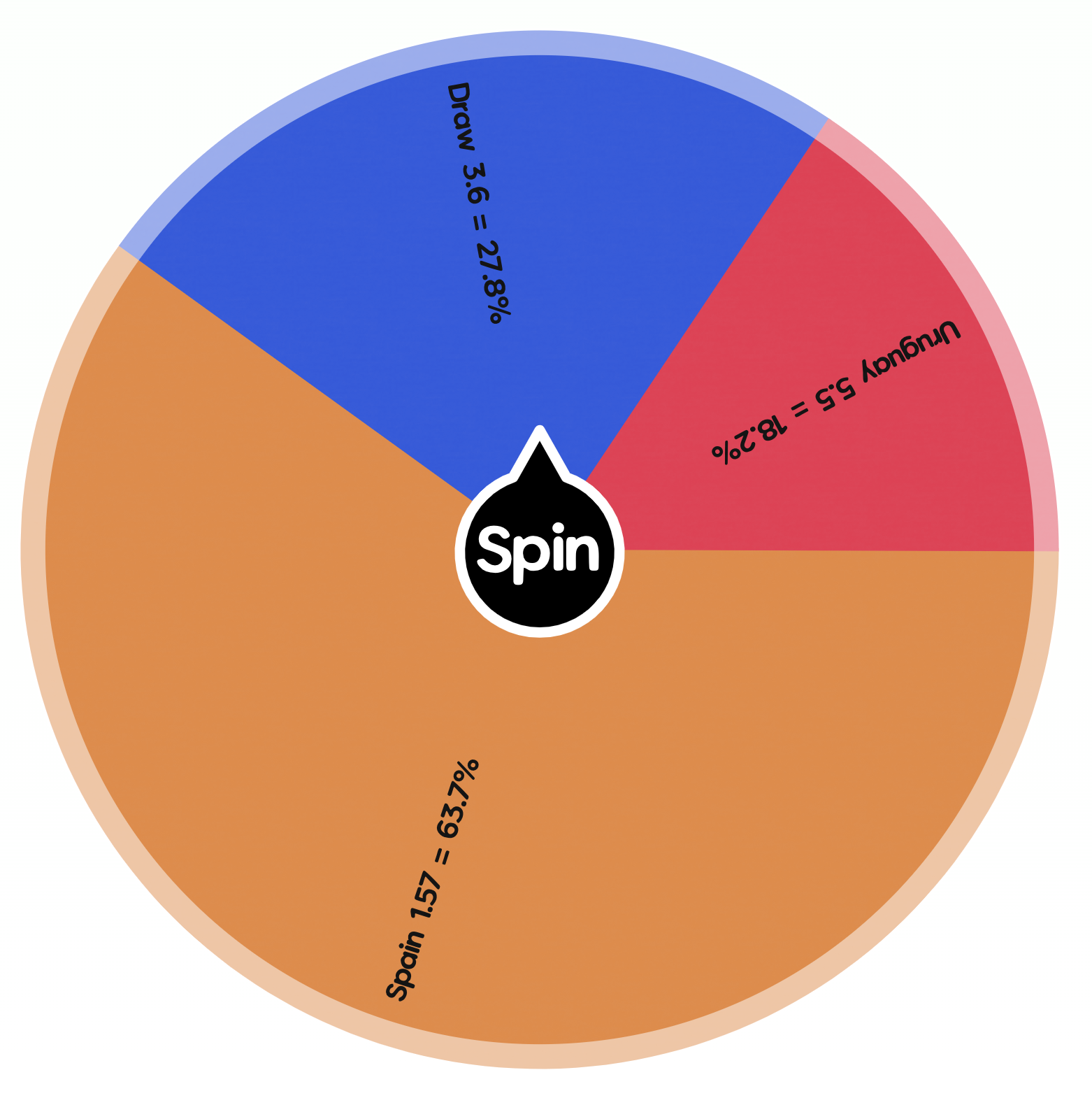What Is Virtual Sports Betting And How Does It Work?
Virtual sports, along with a vast array of other baffling sports terminology, can seem like quite a strange concept when you first come across them. Given the vast number of real sports going on at any particular moment, why would anyone want to bother watching a virtual imitation of the real thing?
Well, most sports have seasons, and that means long chunks of the year when not much is happening in a particular sport.
Fans of that sport aren’t going to be satisfied watching a CGI version of their favourite team or player, of course, but fans of betting on sport may be perfectly happy to place bets before a virtual match kicks off.
If you’ve heard of virtual sports but aren’t quite sure what they are, or if you’re interested in betting on virtual sports but have concerns about their legitimacy, you’re in the right place. In this article, we’ll take you through what virtual sports are, how they work, and whether betting on them is as safe as on real sports.
What Are Virtual Sports?
In some ways, virtual sports are exactly what they sound like - virtual versions of real sports. Some of the most popular sports have virtual equivalents, including football, tennis and horse racing.
Bookies will host scheduled events for virtual sports at specific times throughout the day, and bettors are even able to watch them as they happen.
As an example, take a look at BetFred’s virtual football page below. You’re able to watch the current ‘match’ going on, while also checking out the upcoming matches, which take place every few minutes, and the odds offered on some of the most popular markets (including total goals, both teams to score, correct score etc).

The outcome of virtual sports events is determined by an algorithm, however, so from a betting perspective considerations like form, past performance and conditions don’t have any effect on the outcome of the game.
A lot of the elements skilled bettors most appreciate about sports betting are completely absent, making virtual sports closer to casino betting than real life sports betting.
What’s The Difference Between Virtual Sports And eSports?
It’s easy to get mixed up between virtual sports and eSports, but they aren’t in any way the same thing. Virtual sports are simply virtual versions of regular sports designed explicitly for gamblers to bet on, with the outcome determined by algorithm.
eSports, meanwhile, are video games played competitively - so in many ways are much more similar to ‘normal’ sports than virtual sports are.
Betting on eSports has gained a lot of popularity in recent years, as eSports themselves have grown in stature. The biggest eSports tournaments now offer millions of dollars in prize money, and there are over 30,000 professional eSports players worldwide.
Bookies will offer markets for both eSports and virtual sports, so it’s extremely important not to get them confused if you’re planning to bet on either one.
Their names might sound similar to each other, but in actual fact they have very little in common at all.
How Does Betting On Virtual Sports Work?
When it comes to placing a bet on virtual sports, it works just like with any other sport - however the mechanism for determining the winner is very different.
A random number generator (RNG) is responsible for deciding the course of the match, and the eventual outcome.
To illustrate this, we can think of the odds listed for each possible outcome of a match as taking up a certain portion of a wheel. When the wheel is spun, the outcome occupying the largest chunk of the wheel has the highest chance of winning, but there is still the possibility that either of the other options will occur.
Using the example shown above, for a virtual match between Spain and Uruguay, the probabilities of each outcome occurring could roughly be visualised as below:

Although the algorithms are in fact rather more complicated than this (and as you might have noticed, because of the bookies’ overround, where they make their profit, the probabilities add up to more than 100%), this gives us an idea of how the mechanism for virtual sports betting works.
Bookies are particularly keen on virtual sports betting, because the RNG ensures that the outcomes average out to exactly what they expect, avoiding the variables of performance and conditions that can throw up unexpected results in real sports.
Is It Safe To Bet On Virtual Sports?
Bettors are often quite wary of virtual sports, fearing that they’re fixed. It’s understandable that people would have this concern, given that the matches appear to be entirely under the bookies’ control, but just as casino games are legally required to keep to their advertised RTP, so must virtual sports be run fairly and according to their advertised mechanisms.
If a bookie has a UK gambling licence, it cannot fix its virtual sports, and it would be extremely foolish to attempt it.
So, virtual sports are legitimate, in a legal sense. But that’s not quite the same thing as whether they’re safe to bet on. Because bookies always have a house edge built into their prices, they can be sure of making a profit in the long run. This means that, on average, a gambler should expect to make a loss.
With virtual sports, there’s no element of skill involved, and your betting is entirely based on luck. Because of this, there’s little in the way of strategy that can be applied, and essentially nothing you can do to ‘beat the odds’.
In short, virtual sports betting is perfectly legal and legitimate (though whether it’s ethical is another matter entirely), but that doesn’t necessarily mean it’s ‘safe’. Betting on virtual sports is purely a matter of luck, so from the gambler’s point of view there’s no way to minimise the chances of losses.
For anyone struggling with problem gambling, virtual sports betting can be something of a trap. It may fill the holes between real life sporting events, but that can simply provide more opportunities for a gambling addict to lose their money. If you are finding that you’re losing control of your gambling, the best thing to do is to stop altogether, and to seek help.
Tips And Strategy For Virtual Sports
Because matches are decided by algorithm, rather than by the actual performance of the ‘players’ involved, you’re far more limited when it comes to strategy than when betting on real life sports.
Odds become much more significant when deciding how to place your bets, as they’re the only real indication you have of the likelihood of a team or player winning in an event.
Although historic data and statistics are available for virtual sports, just as they are for real sports, you’re unlikely to be able to find odds discrepancies to take advantage of, as everything is accounted for by the algorithm used to determine the outcome of an event.
As with any other form of sports betting, betting on the favourite will maximise your chances of winning, but your winnings will be smaller - and there is of course still the chance of the underdog winning. Ultimately, the house always wins - so, as with a slots game, the likelihood is that, on average, you will always win back less than you spent in the first place.
Matched Betting On Virtual Sports?

Unfortunately, it’s difficult to take advantage of virtual sports offers through Matched Betting. It isn’t possible to place lay bets on virtual sports through exchanges, so the traditional methods of Matched Betting simply aren’t available.
However, that doesn’t mean it isn’t possible to take advantage of virtual sports offers at all. It’s best to treat them more like casino offers, where you evaluate the RTP and work out whether an offer offers a positive expected value (EV).
If you establish that a virtual sports offer has a positive EV, it may well be worth doing - but don’t forget that, unlike traditional Matched Betting, it won’t be risk free.
You’ll be enjoying a statistically advantageous position, and over a large enough sample size you’re likely to end up making a profit - but your profits aren’t guaranteed, so you should make sure you have a large enough bankroll to sustain any losses comfortably.
Summary
Virtual sports betting involves betting on virtual versions of real life sports - but because they’re virtual, algorithms determine the course of events, not performance. This means they have more in common with casino games than real life sports, from a betting point of view.
Matched Betting is consequently impossible with virtual sports, but you can still use casino techniques to take advantage of virtual sports offers. However, it’s important to remember that this technique is not risk free - and to be careful about betting on virtual sports. While they’re perfectly legal and legitimate, they pose a particular risk to problem gamblers, and (unless you’re taking advantage of an EV+ offer) will ultimately always make bookies profits overall.
Updated: 24 Dec 2024
The Author
Stephanie is a published author and, having taken up Matched Betting fairly recently, she knows exactly how beginners feel when they first start Matched Betting. She loves breaking down complex subjects in straightforward terms to make them accessible to newcomers, and to speed them on their way to making their first profits.

